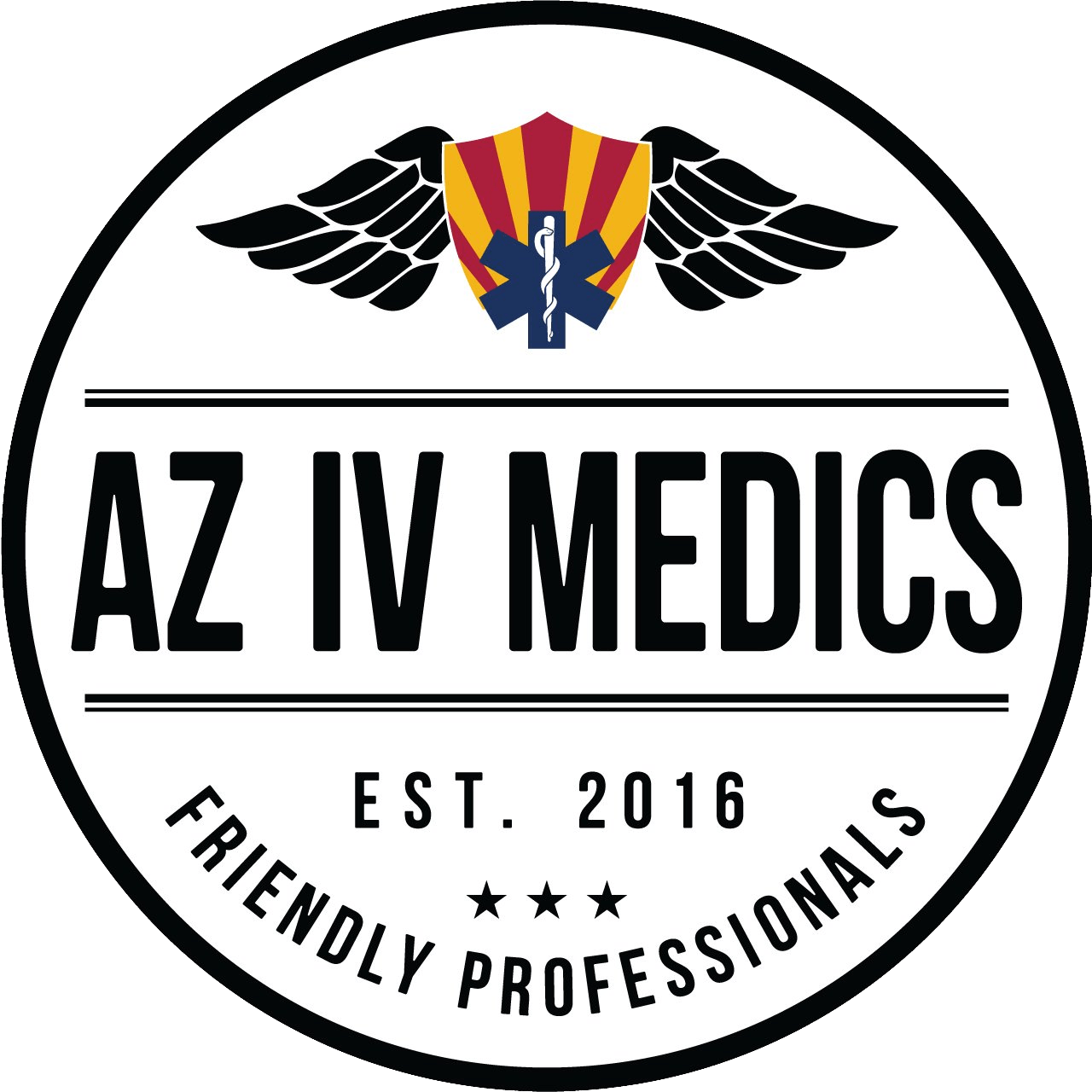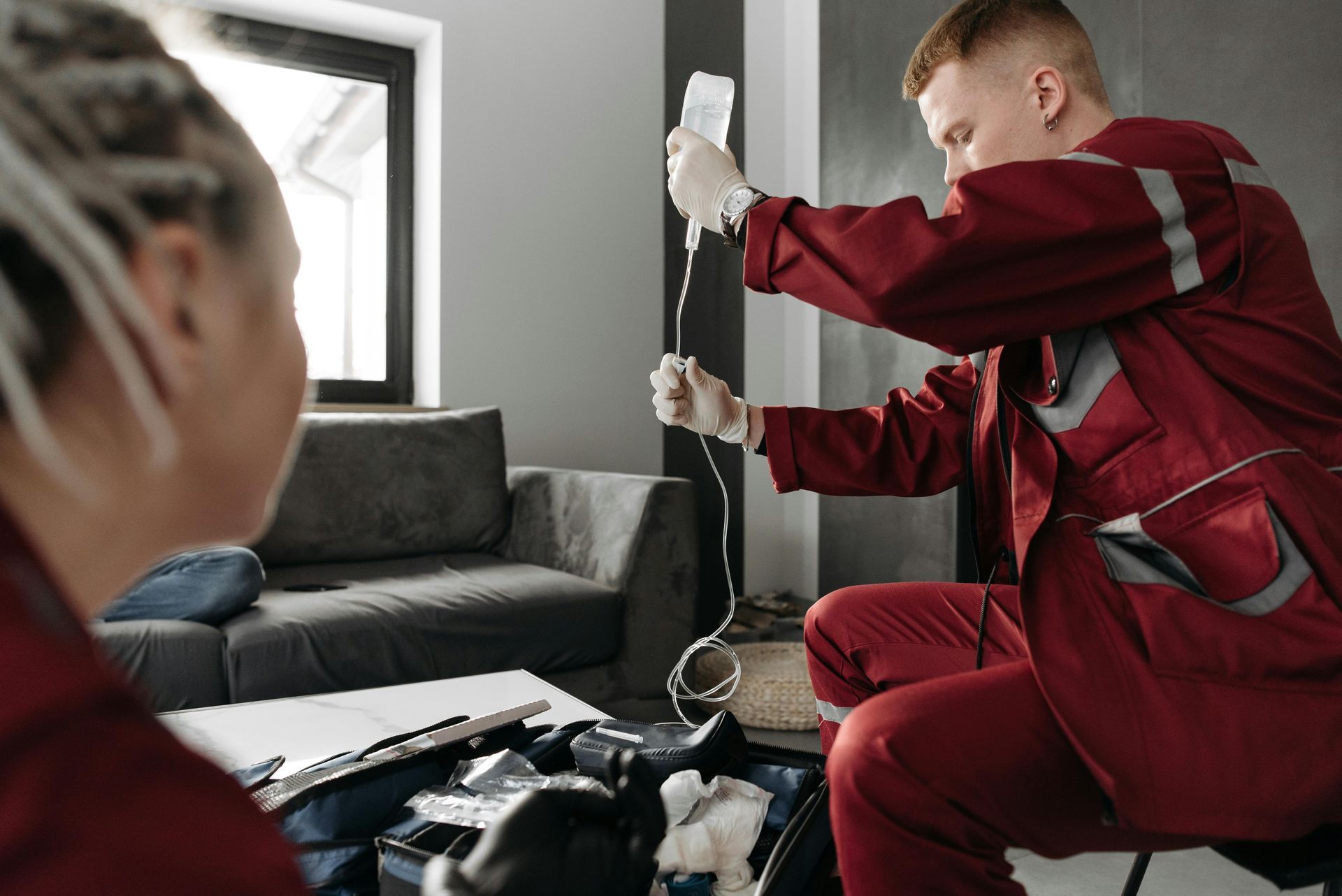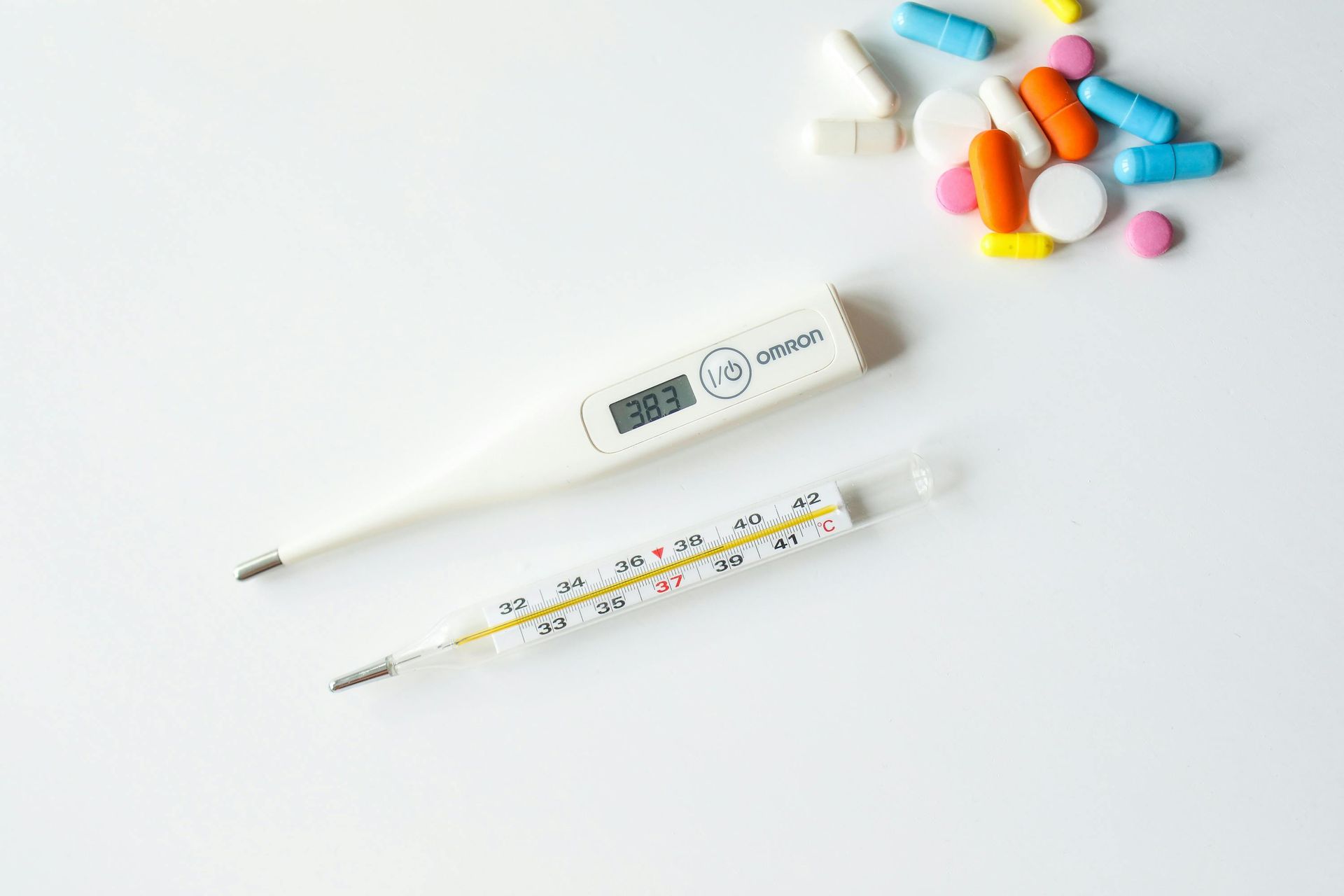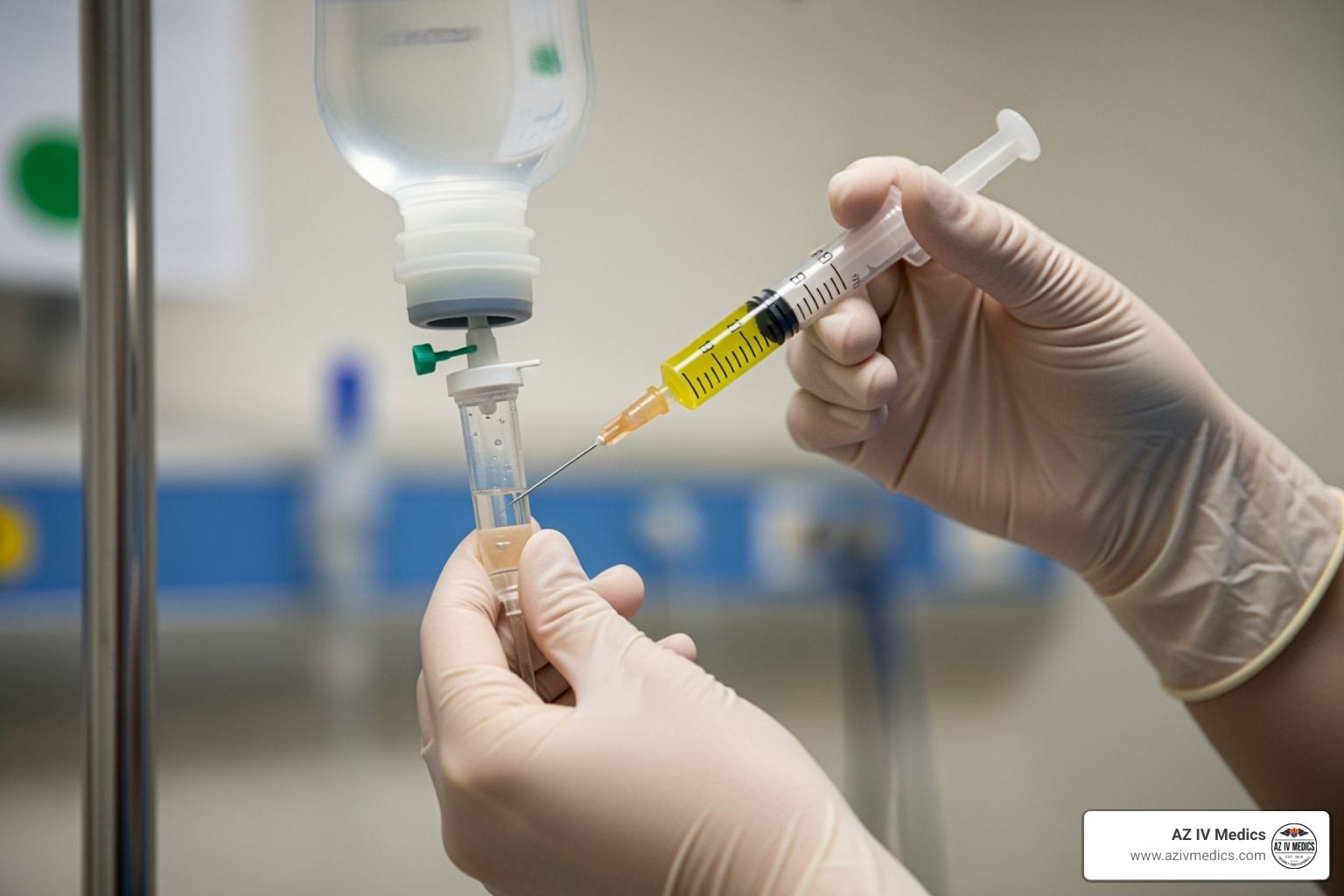Vitamin C Overload—What You Need to Know About High Dose IV Therapy

Medically reviewed by Micaela Strevay, FNP-C, PMHNP-BC
Table of Contents
Why High Dose Vitamin C Is Getting Serious Medical Attention

High dose vitamin c therapy involves administering 10-100 grams of vitamin C intravenously to achieve plasma concentrations up to 200 times higher than oral supplements can provide. Here's what you need to know:
Key Benefits:
- Cancer support : Doubles survival in pancreatic cancer when combined with chemotherapy
- Improved treatment tolerance : Reduces chemotherapy side effects
- Immune system boost : Supports natural defense mechanisms
- Quality of life : Improves energy and reduces fatigue in patients
Safety Profile:
- Well-tolerated up to 3 g/kg per infusion
- Minimal serious side effects in clinical trials
- Requires screening for G6PD deficiency and kidney disease
How It Works:
- IV delivery bypasses digestive limits
- Achieves therapeutic plasma levels (15-49 mM)
- Acts as both antioxidant and pro-oxidant depending on tissue type
This isn't about mega-dosing vitamin C pills. We're talking about a precise medical therapy that's showing real promise in clinical trials, especially when combined with standard cancer treatments.
The research is compelling. In a recent phase 2 trial, patients with advanced pancreatic cancer who received high-dose IV vitamin C alongside chemotherapy lived twice as long as those who got chemotherapy alone - 16 months versus 8 months.
I'm Joseph Lopez AZIVM, and I've been working with IV vitamin C therapy for years, helping Arizona residents access high dose vitamin c treatments in the comfort of their homes. Through mobile IV services, we've seen how this therapy can support people's health goals when administered safely and professionally.

Easy high dose vitamin c word list:
- IV infusion for dehydration
- Mobile IV vitamin therapy
- At home B12 injection
High Dose Vitamin C Therapy 101

When someone mentions high dose vitamin c , they're talking about something completely different from the vitamin C tablets you pick up at the pharmacy. We're talking about doses of 10 grams or more - that's roughly 100 times what you'd get from your daily multivitamin.
The science behind this is straightforward. When you take vitamin C pills, your intestines can only absorb so much at once. The maximum plasma concentration you can achieve orally is around 220 µmol/L. But with IV administration, we can reach levels of 15-49 mM - that's more than 200 times higher!
This isn't some new fad either. The idea of using very high doses of vitamin C for medical treatment goes back to the 1970s with researchers like Linus Pauling. The problem was, those early studies used oral vitamin C, which we now know can't achieve the therapeutic levels needed.
| Method | Maximum Plasma Level | Duration | Absorption Rate |
|---|---|---|---|
| Oral | 220 µmol/L | 2-3 hours | Limited by gut saturation |
| IV | 15-49 mM | 1-2 hours | 100% bioavailable |
How High Dose Vitamin C IV Works
The typical high dose vitamin c protocol involves giving 0.5-1 gram per kilogram of body weight over 60-90 minutes. For most adults, this translates to somewhere between 25-75 grams of vitamin C per session.
At AZ IV Medics, we've made this process convenient by bringing the therapy directly to you. Whether you're at home in Phoenix, at your office in Tucson, or staying at a hotel in Scottsdale, we come to you. No travel fees, no waiting rooms, no hassle.
The infusion process is straightforward. We prepare a sterile solution of vitamin C, carefully controlling the pH and protecting it from light exposure. The solution goes in through a small IV catheter, usually placed in your arm, and you can relax while it does its work.
Oral vs IV High Dose Vitamin C
The difference between oral and IV high dose vitamin c comes down to basic biology. Your intestines have specific transporters that move vitamin C from your gut into your bloodstream. These transporters become saturated at relatively low doses - around 200-400 mg.
This is why taking massive doses of oral vitamin C often leads to digestive upset and diarrhea. Your body is literally rejecting the excess because it can't absorb it.
With IV administration, we sidestep this limitation entirely. The vitamin C goes directly into your bloodstream, achieving the high concentrations needed without digestive issues.
The bioavailability difference is dramatic. While oral vitamin C hits that ceiling quickly no matter how much you take, IV delivery gives us 100% bioavailability.
Science Behind High Dose Vitamin C and Cancer
The science behind why high dose vitamin c might help fight cancer is fascinating. At normal doses from food or supplements, vitamin C is a gentle antioxidant that protects your cells. But when you reach the super-high concentrations possible with IV therapy, high dose vitamin c becomes a pro-oxidant that can create oxidative stress.
The magic happens when high-dose vitamin C meets iron and other metals in your body. This combination generates hydrogen peroxide (H₂O₂). Healthy cells have strong defense systems that can handle this oxidative stress. Cancer cells, however, often have weaker defenses and higher iron content, making them more vulnerable.
Scientists have identified several ways that high dose vitamin c might work against cancer. It disrupts iron metabolism that cancer cells need to grow rapidly. It specifically targets cells with KRAS and BRAF mutations - genetic changes found in many common cancers. The therapy also activates TET enzymes that help control gene expression.
High dose vitamin c also boosts your immune system's natural cancer-fighting abilities and changes the tumor microenvironment - the conditions around tumors that can make them harder to treat.
For more detailed information about scientific research on alternative cancer treatment , the Mayo Clinic provides excellent resources on this evolving field.
Pre-clinical Evidence at a Glance
Laboratory studies are impressive. When researchers gave high dose vitamin c to mice with human cancer cells, they saw tumor shrinkage of 40-60%. The vitamin C treatment also reduced metastasis - the spread of cancer to other parts of the body - by 50-90%.
The key finding? These benefits only happened with doses of 1 gram per kilogram or higher. That's a dose you simply cannot achieve by swallowing pills, no matter how many you take.
Human Trials & Safety Data
Human studies are catching up with the promising lab results. Researchers have conducted phase I and II trials in ovarian, lung, colorectal, and pancreatic cancers . The safety profile has been remarkably good - studies using up to 3 grams per kilogram of high dose vitamin c reported no severe toxicity.
One study in ovarian cancer patients showed women who received high-dose vitamin C along with their standard chemotherapy had their disease stay stable for 8.75 months longer than those who got chemotherapy alone.
The most exciting results came from a recent phase 2 trial in pancreatic cancer. Patients who received high dose vitamin c with their chemotherapy lived twice as long as those who got chemotherapy alone: 16 months versus 8 months.
Proposed Anti-Cancer Mechanisms
Scientists think high dose vitamin c fights cancer through multiple pathways. The pro-oxidant burst creates hydrogen peroxide that can damage cancer cell membranes while leaving healthy cells mostly unharmed.
There's also metabolic disruption - high-dose vitamin C interferes with how cancer cells process sugar for energy. Cancer cells are sugar addicts, so this really disrupts their energy supply.
The epigenetic effects are particularly interesting. Vitamin C helps activate TET enzymes, which work like cellular editors, helping genes remember their proper instructions.
Finally, high dose vitamin c may interfere with angiogenesis - the process where tumors grow new blood vessels to feed themselves.

Benefits, Risks, and Who It Helps

When I talk with patients about high dose vitamin c therapy, they're often surprised by how much better they feel during treatment. The quality of life improvements are often the first thing people notice. Reduced fatigue is huge - many cancer patients tell me they can actually get through their day without needing multiple naps. Better treatment tolerance means fewer sick days from chemotherapy side effects.
What really stands out in the research is how consistently patients report these benefits. In clinical studies, people receiving high dose vitamin c alongside their standard treatments score significantly better on quality-of-life measures.
But this therapy isn't right for everyone. If you have G6PD deficiency (a genetic condition that affects red blood cells), high-dose vitamin C can cause severe anemia. That's why we always screen for this before starting treatment. Severe kidney disease is another contraindication, as is a history of kidney stones in some cases.
The good news is that for most people, high dose vitamin c is remarkably safe. Clinical studies using doses up to 3 grams per kilogram of body weight have reported no serious toxicity.
Potential Side Effects and Safety Checks
The side effects of high dose vitamin c are generally mild. Some people experience nausea during or right after the infusion, but this usually passes quickly. Vein irritation can happen at the IV site - that's why we use proper technique and monitor you throughout treatment.
One quirky side effect is that high-dose vitamin C can interfere with certain blood glucose meters , giving false readings. If you're diabetic, we'll let you know which meters to avoid and when to check your blood sugar.
Before we start any high dose vitamin c therapy, we do thorough screening. This includes checking for G6PD deficiency, reviewing your kidney function, and going over all your medications.
Who May Benefit Most from High Dose Vitamin C
Based on current research, certain groups seem to get the most benefit from high dose vitamin c therapy. If you have KRAS or BRAF mutant colorectal cancer , the research is particularly promising. Ovarian cancer patients , especially those with platinum-sensitive tumors, have shown good responses in clinical trials. Non-small cell lung cancer is another area where we're seeing encouraging results.
For patients in palliative care , high dose vitamin c can be incredibly valuable for managing treatment-related fatigue and maintaining quality of life.
But you don't have to have cancer to benefit. Many people use high dose vitamin c for immune support, faster recovery from illness, or just to optimize their overall health. At AZ IV Medics, we work with people across the spectrum.
The beauty of our mobile service is that we can bring this therapy directly to you, whether you're at home recovering from treatment, at your office, or even staying at a hotel. We serve Phoenix, Tucson, Scottsdale, Mesa, Flagstaff, and surrounding areas with no travel fees.
Integrating High Dose Vitamin C with Standard Cancer Care

Let me be clear: high dose vitamin c is not a magic bullet that replaces your cancer treatment. It's what we call an adjunct therapy - think of it as a supportive teammate rather than the star player.
The exciting part is that research shows this teamwork approach really works. In laboratory studies, combining high dose vitamin c with standard cancer treatments produced synergistic effects in 80% of cases.
Some of the most promising combinations include cisplatin plus high-dose vitamin C for lung cancer patients, paclitaxel combined with vitamin C for ovarian cancer, and gemcitabine with vitamin C for pancreatic cancer. These aren't random pairings - researchers have found that vitamin C can actually make these chemotherapy drugs work more effectively while potentially reducing their harsh side effects.
The story gets even more interesting with radiation therapy. Studies suggest that high dose vitamin c may act as a radiation sensitizer, helping radiation work better against cancer cells while protecting healthy tissue.
Even immunotherapy drugs may work better with high dose vitamin c . Early research suggests that vitamin C can improve T-cell function and boost overall immune response.
Most patients receive high dose vitamin c infusions 2-3 times per week, carefully timed around their chemotherapy cycles. Several ongoing clinical trials are studying these combinations in various cancer types.
Designing an Adjunctive Treatment Plan
Creating a treatment plan that includes high dose vitamin c requires careful coordination. Your oncologist needs to be part of this conversation from day one.
First, you'll have an honest discussion with your cancer doctor about the potential benefits and risks. Not every oncologist is familiar with high-dose vitamin C research, so you might need to share some of the studies we've discussed.
Next comes the safety screening. We'll run baseline laboratory tests to check your kidney function and screen for G6PD deficiency. We'll also review all your medications to avoid any problematic interactions.
The timing piece is crucial. We coordinate your high dose vitamin c infusions with your chemotherapy or radiation schedule. Sometimes this means infusing vitamin C the day before chemo to potentially reduce side effects.
At AZ IV Medics, we've made high dose vitamin c therapy as accessible as possible throughout Arizona. Our mobile service means you can receive treatment in the comfort of your own home, which is especially valuable when you're dealing with cancer treatment.
Future Research Gaps & Trials to Watch
While the research on high dose vitamin c is genuinely exciting, we're still waiting for those big, definitive phase III trials that will settle the question once and for all.
The questions researchers are still working to answer include: What's the optimal dose and frequency? Which patients are most likely to benefit? We're seeing hints that certain genetic mutations make patients more responsive to vitamin C therapy.
There's also fascinating research happening with oral liposomal vitamin C - a special formulation that might achieve higher blood levels than regular vitamin C pills.
The bottom line is that high dose vitamin c therapy is at an exciting crossroads. We have enough evidence to suggest it's safe and potentially beneficial, especially when combined with standard treatments.

Frequently Asked Questions about High Dose Vitamin C IV Therapy
Does high dose vitamin C replace chemotherapy?
Absolutely not. High dose vitamin c is what we call an adjunctive therapy - it works alongside your standard cancer treatments, not instead of them.
Think of it like this: if chemotherapy is your main course, high-dose vitamin C is like a really good side dish that makes everything work better together. The most exciting research involves combining high dose vitamin c with chemotherapy, radiation, or other conventional treatments.
There are no large, controlled clinical trials showing that vitamin C alone can cure cancer. The power seems to be in the combination.
How much vitamin C is "high dose," exactly?
When we talk about high dose vitamin c , we're talking about doses that are literally thousands of times higher than what you'd get from food or regular supplements.
Your daily recommended intake of vitamin C is only 75-90 mg. A typical vitamin C supplement might give you 500-1000 mg. But high dose vitamin c therapy involves 10,000-100,000 mg (that's 10-100 grams) delivered directly into your bloodstream.
To put this in perspective, you'd have to eat about 150 oranges to get 10 grams of vitamin C - and your body still couldn't absorb it all from your digestive system.
The exact dose we use depends on several factors: your body weight, your medical condition, and your treatment goals. Most protocols use 0.5-1 gram per kilogram of body weight.
Is it safe to do infusions at home?
Yes, when it's done by qualified healthcare professionals - and that's exactly what we provide at AZ IV Medics. Our team includes licensed nurses and medical professionals who are specifically trained in IV therapy administration.
We bring all the necessary equipment and safety protocols right to your location. This includes sterile IV supplies, emergency medications, and monitoring equipment.
Home infusions actually offer several important advantages. You get the comfort and privacy of your own space , which can make a big difference when you're not feeling well. There's no exposure to infections from waiting rooms or hospitals. Plus, there's no travel time or waiting rooms .
We serve Phoenix, Tucson, Scottsdale, Mesa, Flagstaff, and throughout Arizona with no travel fees. The safety protocols we follow are the same ones used in hospitals and clinics.
Conclusion
High dose vitamin c therapy represents a fascinating intersection of old wisdom and new science. While vitamin C has been known as an essential nutrient for centuries, the therapeutic potential of high-dose intravenous administration is only now being fully understood.
The evidence is compelling but still evolving. We have strong pre-clinical data showing 40-60% tumor shrinkage in animal studies, promising phase II trials that doubled survival times in pancreatic cancer patients, and mounting anecdotal evidence from patients and practitioners. The safety profile is excellent, with clinical studies showing no severe toxicity up to 3 g/kg per infusion.
However, it's important to maintain a balanced perspective. High dose vitamin c is not a miracle cure, and it's not appropriate for everyone. The most promising applications involve using it as an adjunct to standard medical care, not as a replacement.
If you're considering high dose vitamin c therapy, consult with your healthcare team first. Get proper screening to ensure you don't have contraindications like G6PD deficiency or kidney disease. Choose qualified providers who understand the proper protocols and safety measures.
At AZ IV Medics, we're committed to making high dose vitamin c therapy accessible to Arizona residents through our mobile service. We bring the treatment to you, whether you're at home, in the office, or staying at a hotel. Our one-visit setup means you can start treatment quickly and conveniently.
The convenience factor matters more than you might think. Cancer patients often have compromised immune systems and benefit from avoiding crowded medical facilities. Having your infusion at home means you can rest immediately afterward and maintain your normal routine as much as possible.
The future of high dose vitamin c therapy looks bright, with ongoing research likely to refine our understanding of who benefits most and how to optimize treatment protocols. We're watching several phase III trials that should provide more definitive answers.
For now, it represents a promising, well-tolerated option for those looking to improve their health and treatment outcomes. The combination of strong pre-clinical evidence, encouraging early clinical trials, and excellent safety profile makes it worth considering for appropriate candidates.
Your health journey is unique, and what works for one person may not work for another. The key is working with qualified healthcare professionals who can help you make informed decisions based on your individual circumstances and health goals.





